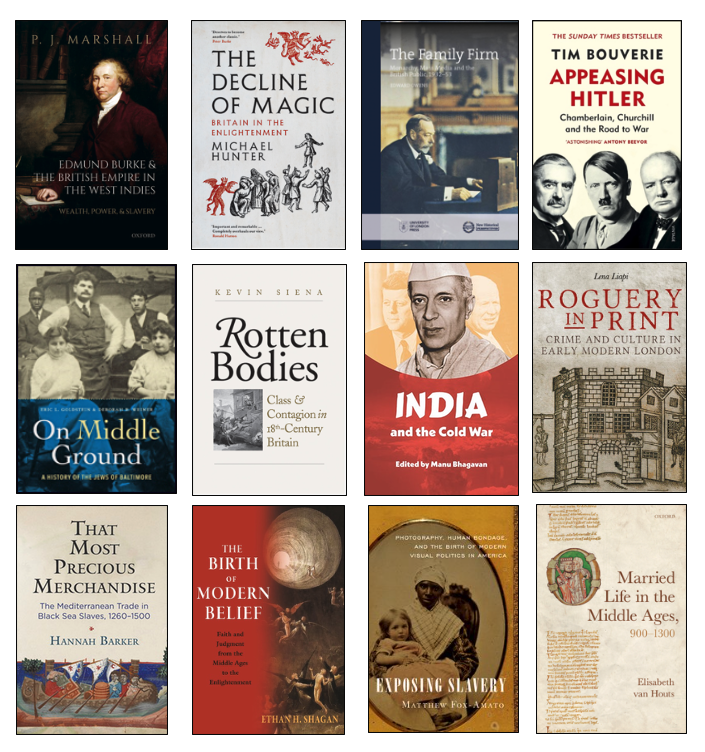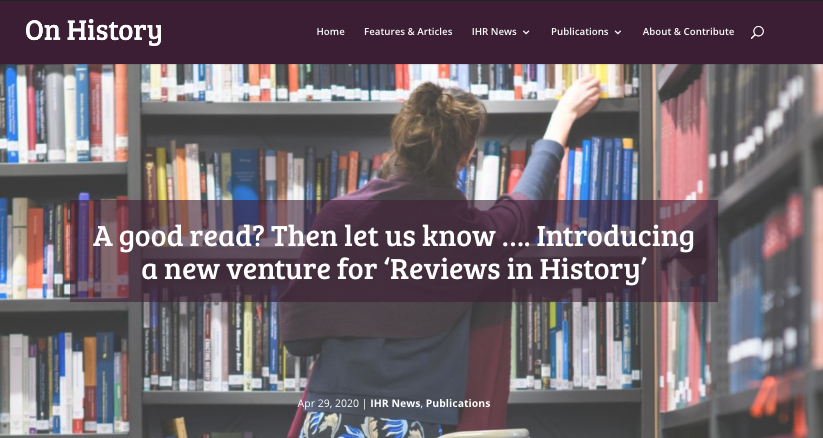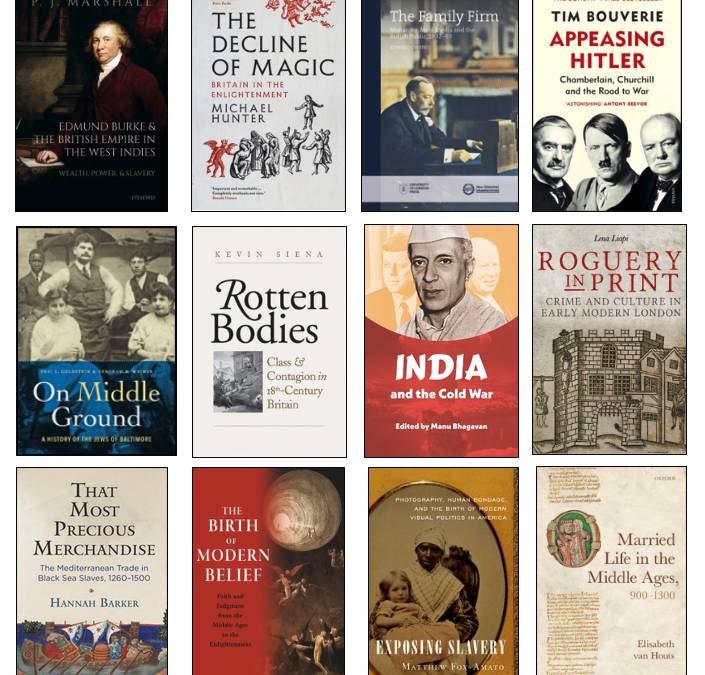The IHR’s Reviews in History publishes weekly commentaries on new books. Our reviews are longer than those in many academic journals and focus on titles published in the last 6-12 months. Many reviews also include responses from the book’s author.
Reviews in History began in 1996 and now includes reviews on over 2400 books, searchable by theme. We’ve also recently introduced a new angle to the service: inviting short notes from readers on a recent book, article or essay that’s impressed and which you recommend to others.
Below you’ll find a selection of the most recent Reviews in History, published over the past couple of months. Titles range from medieval marriage to early modern medicine and the modern media, published by — among others — OUP, Yale, Penguin, North Carolina, University of London Press, Princeton and Boydell & Brewer.
New reviews are posted each Friday and are sent by email: signing up for next week’s is easy.

Edmund Burke and the British Empire in the West Indies: Wealth, Power, and Slavery / P. J. Marshall
Natalie Zacek’s review challenges aspects of an illuminating study of Burke’s place in the politics of Britain and its West Indian colonies in the 18th century. P.J. Marshall responds
***
That Most Precious Merchandise: The Mediterranean Trade in Black Sea Slaves, 1260-1500 / Hannah Barker
Janel Fontaine explores “a case study of great importance”, on late medieval slave trading practices in the Mediterranean.
***
On Middle Ground: A History of the Jews of Baltimore / Eric L. Goldstein, Deborah R. Weiner
Toni Pitock explores a history of the Jewish community in Baltimore, a ‘middle ground’ of contradictions and ambiguities.
***
The Family Firm: Monarchy, Mass Media and the British Public, 1932-53 / Edward Owens
Arianne Chernock reviews this perceptive analysis of the way the monarchy harnessed mass media to forge stronger ties with the British public from 1932 to 1953.
***
The Decline of Magic: Britain in the Enlightenment / Michael Hunter
Jan Machielsen reviews Hunter’s work, which questions the received wisdom that science displaced magic in Enlightenment Britain. Michael Hunter responds.
***
Married Life in the Middle Ages 900-1300 / Elisabeth van Houts
Amy Livingstone reviews this important study, “rich in novel ideas” about the roles of women, the clergy, and emotions in medieval marriage.
***
India and the Cold War / ed. Manu Bhagavan
Marc A. Reyes enjoys this work on India’s pivotal role in the Cold War, appreciating its challenge to established arguments and its broad view of an understudied area.
***
Roguery in Print: Crime and Culture in Early Modern London / Lena Liapi
Jonah Miller reviews a compelling and challenging look at what pamphlets on the early modern rogue were really about.
***
Exposing Slavery: Photography, Human Bondage, and the Birth of Modern Visual Politics in America / Matthew Fox-Amato
Earnestine Jenkins reviews a well-researched, significant contribution to visual studies and the relationship between race, representation, and photography.
***
Appeasing Hitler: Chamberlain, Churchill and the Road to War / Tim Bouverie
Adam Timmins reviews a highly-readable account of the appeasement policy, and questions whether it uncovers new views of this well-tilled ground.
***
Studio Lives: Architect, Art and Artist in 20th-Century Britain / Louise Campbell
Lynne Walker reviews Campbell’s beautifully illustrated, fresh perspective on life inside the modernist British studio, and the work which emerged from it.
***
Rotten Bodies: Class and Contagion in 18th-Century Britain / Kevin Siena
Michelle Webb reviews this look at how the memory of the plague held the poor responsible for epidemic disease in 18th-century Britain.
***
The Birth of Modern Belief: Faith and Judgment from the Middle Ages to the Enlightenment / Ethan H. Shagan
David Manning reviews this “erudite, intellectually electrifying” look at how a distinctively modern category of belief came into being.
***

If you could recommend one recent History book to others, what would it be – and why? We’re looking to start something new at the IHR: inviting you to submit short pieces on a book or article that’s really impressed you — and which others should know about. Find out more

